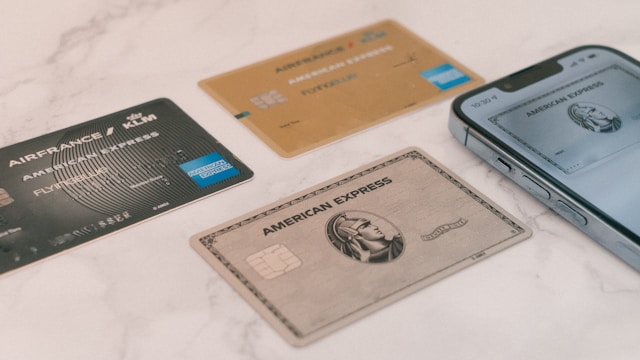Closing a credit card is a decision that often comes with uncertainty and hesitation. For many individuals, it’s not just about closing a financial account but also about understanding the potential implications on their credit score, financial stability, and future borrowing capabilities. In this comprehensive article, we will delve into the various aspects of closing a credit card—exploring both the pros and cons, debunking myths, and providing practical guidance to help you navigate this decision with confidence.
Understanding Credit Cards and Their Role
Credit cards are ubiquitous in modern financial life, offering convenience, security, and the ability to borrow money on a short-term basis. They provide a revolving line of credit that allows cardholders to make purchases, pay bills, and build a credit history. The key features of credit cards include:
- Credit Limit: The maximum amount you can borrow on the card.
- Interest Rates: The APR (Annual Percentage Rate) applied to balances not paid in full each month.
- Fees: Annual fees, late payment fees, foreign transaction fees, etc.
- Rewards and Benefits: Cashback, travel rewards, insurance coverage, and other perks.
Reasons for Considering Closing a Credit Card
1. Financial Management and Debt Reduction
Closing a credit card may be part of a strategy to simplify finances and reduce the temptation to overspend. By eliminating unused or unnecessary credit lines, individuals can better manage their financial obligations and focus on paying down existing debt.
2. Avoiding Fees and Costs
Some credit cards charge annual fees, especially those with premium benefits or rewards programs. Closing such cards can help avoid these recurring expenses, saving money over time.
3. Security and Fraud Prevention
Unused credit cards can pose security risks if lost or stolen. Closing these accounts reduces the potential for unauthorized transactions and identity theft.
4. Lifestyle Changes
Life events such as moving abroad or changes in financial priorities may prompt individuals to reassess their credit card needs. Closing a card that no longer aligns with current lifestyle choices can be a practical decision.
Potential Drawbacks of Closing a Credit Card
1. Impact on Credit Utilization Ratio
Your credit utilization ratio—the amount of credit you’re using compared to your total available credit—plays a significant role in determining your credit score. Closing a credit card reduces your total available credit, which can increase your utilization ratio if you carry balances on other cards. A higher utilization ratio can negatively impact your credit score.
One of the key factors affecting your credit score is your credit utilization ratio—the amount of credit you’re using compared to your total credit limit. Closing a credit card can potentially increase your overall credit utilization ratio if you have balances on other cards. For example, if you close a card with a $5,000 limit and you have $1,000 in balances on other cards with a total limit of $10,000, your utilization ratio would increase from 10% to 15%, which could negatively impact your credit score.
2. Effect on Credit History Length
The length of your credit history is another crucial factor in credit scoring models. Closing a credit card account that you’ve held for a long time may shorten your average account age, potentially lowering your credit score. Lenders typically prefer to see a longer credit history as it demonstrates your ability to manage credit responsibly over time.
3. Potential Impact on Credit Mix
Having a diverse mix of credit accounts—such as credit cards, mortgages, and loans—can positively influence your credit score. Closing a credit card account could reduce the diversity of your credit mix, potentially affecting your creditworthiness in the eyes of lenders.
4. Loss of Rewards and Benefits
Many credit cards offer rewards programs, cashback incentives, travel perks, and other benefits to cardholders. Closing a card means forfeiting these rewards and benefits, which could be valuable depending on your spending habits and financial goals.
Factors to Consider Before Closing a Credit Card
1. Evaluate Your Credit Profile
Before making a decision, assess your current credit profile. Consider factors such as your credit score, utilization ratio, length of credit history, and overall financial health. Understanding these elements will help you gauge the potential impact of closing a credit card.
2. Explore Alternatives
If the primary reason for closing a credit card is to avoid fees or simplify finances, explore alternative options. Some credit card issuers may offer product changes (e.g., switching to a no-fee card within the same issuer) that allow you to retain the account history without the associated costs.
3. Develop a Plan
If you decide to close a credit card, develop a plan to mitigate any potential negative consequences. Pay down existing balances to lower your overall utilization ratio, and continue to make timely payments on your remaining credit accounts to maintain a positive credit history.
4. Monitor Your Credit Score
After closing a credit card, monitor your credit score regularly to track any changes. Use reputable credit monitoring services or tools provided by financial institutions to stay informed about your credit health.
Myths About Closing Credit Cards Debunked
Myth 1: Closing a Credit Card Will Immediately Improve Your Credit Score
Reality: Closing a credit card can impact your credit score, but the extent of the impact depends on various factors such as your utilization ratio and credit history length.
Myth 2: It’s Always Better to Keep Unused Credit Cards Open
Reality: While unused credit cards can contribute to your total available credit and improve your utilization ratio, keeping multiple unused cards open may lead to increased fees and financial clutter.
Myth 3: Closing a Credit Card Erases Its History from Your Credit Report
Reality: Closing a credit card does not remove its history from your credit report. Positive account information typically remains on your report for several years, contributing to your credit history length.
Conclusion: Making an Informed Decision
In summary, the decision to close a credit card is not inherently good or bad—it depends on your individual circumstances, financial goals, and credit profile. While there are potential drawbacks to consider, such as impacts on your credit score and credit utilization ratio, closing a card can also offer benefits such as fee avoidance and simplification of finances.
Before closing a credit card, evaluate the pros and cons carefully. Consider consulting with a financial advisor or credit counselor if you’re uncertain about the best course of action. By understanding the factors at play and taking proactive steps to manage your credit responsibly, you can make informed decisions that support your long-term financial well-being.



